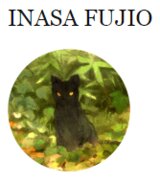Review of recent books I've read
2022-06-09
A few thoughs; I feel like I've thinned myself out a little too thin lately, which isn't a bad thing as long as I'm having fun but I can't really extend my thoughts beyond surface level analysis since I'm so clueless on the fields of studies. I'm sure within a few years I will look back at these remarks and either by pleasantly surprised or utterly embarassed. Gotta start somewhere...
Confessions of a Mask- Mishima Yukio
What a personal book, “confession” seems to be the appropriate term for this book. A sensitive piece that doesn’t have that political edge apparently visible in his later books but a good entry point I feel. There seems to be Nietzschean dialectics that might’ve passed over my head, so a revisit once I familiarize myself with both.
The Gay Science- Friedrich Nietzsche
If Nietzche were alive today, I would believe the contents of this book would be what he would be tweeting, short insights, poems and complaining. Wasn’t that good of a book if one were actually serious about studying Nietzsche.
Denial of Death - Ernest Becker
What’s up with psychoanalysts and their obsession over the anus?
Starting Point- Hayao Miyazaki
I highly doubt Miyazaki knows about the Simulacra and Simulation but he was onto something when he said otakus can't make anything worthwhile. He is right in that artists should take interest in things outside of art, almost so that art is merely the byproduct of such interest. Hyperreal art is nothing more than a simulation, Miyazaki knows genuine art must be unfiltered reflections of reality. I honestly have a disdain towards art that has a little too much awareness about pop culture and internet affairs, I can tell they were inspired by anime or movies first, then reality came second. Miyazaki, as flawed and hypocritical as he is, is a master of being observant of human behavior. His thought process behind Mei and Satsuki sleeping after the phone call is an indication of that.
More importantly he was so real for being frustrated that his art was mistaken as imitations of Tezuka Osamu. I always wonder did the hyperreal, abundant in entertainment, foster a generation that can only interact with the world through the lens of media? Or has it always been this way? Either way Miyazaki took the opportunity to break free from Tezuka Osamu's God hand, I feel a little hopeless that I will escape from the inevitable "Ghibli-Disney-esque" remarks. People ought to go touch grass.
I've also yet to discuss the idea that No-face is not merely a representation of greed, I find it bizarre that greed can be tamed as such, especially not having heard any Shinto God to change what they represent. Rather to understand No-face one must look into the domestic politics of the bubble era which he represents the stock market. The wealth he offers is speculative but people are blinded by it regardless, and they keep feeding him until it bursts. I find this interpretation more appropriate because now the morality of him makes more sense.
The idea that Miyazaki considered making a film set in modern day Tokyo is tantalizing, and extremely disappointing that he didn't do it. It's a shame that Nausicaa was probably his most honest film. He didn't have the courage to tell children that the world is ending.
1984- George Orwell
Couldn’t take it seriously because it’s such a meme. The Joker of books.
Origins of Totalitarianism- Hannah Arendt
Two major takeaways; an apolitical society, especially the young who are apathetic are the preconditions for totalitarianism, which I feel Japan has achieved within the past decade. And I sympathize, having a one party government does wonders to the destruction of morale of democratic choice, but I cannot excuse how clueless Japanese people are about world affairs and even domestic ones. Secondly a lonely society fits Japanese society’s description as well. Communication and passion towards politics turns out to be a good thing, which I don't see in Japanese television.
Ghosts of My Life: Writings on Depression, Hauntology and Lost Futures
Honestly liked it more than Capitalist Realism, CR was too brief and I really wanted a follow-up. Ghosts of My Life, although I was absolutely clueless on the 70s pop culture stuff, the first section was concise and a very observant analysis on media trends. Although much of hauntology was appropriated wrongly from Derrida, which makes for really confusing definitions of Fisher’s idea of hauntology and Derrida’s, it was never a repeat of Derrida’s ideas in the first place.
Meditations- Marcus Aurelius
My interest in ethics is starting to dwindle, especially classic Greek philosophy but a good book nonetheless.
Annihilation- Jeff VanderMeer
Felt like the backrooms, ethereal sense, overall calm but there’s just something that doesn’t feel right. Is it a tunnel or a tower? Does it matter? Good stuff.
Nushi- Ryohei Ito
Pleasantly surprised at the contemporary analysis of Nushi. Shinto studies tend to overemphasize analysis of ancient history but this book does a good job of setting the foundations of the belief, then applying it to modern day discussions in asking what the Nushi represent, especially when the boundaries between nature and artifical is such a crucial idea in modern environmental philosophy. Perhaps a dedicated essay on Shinto.





